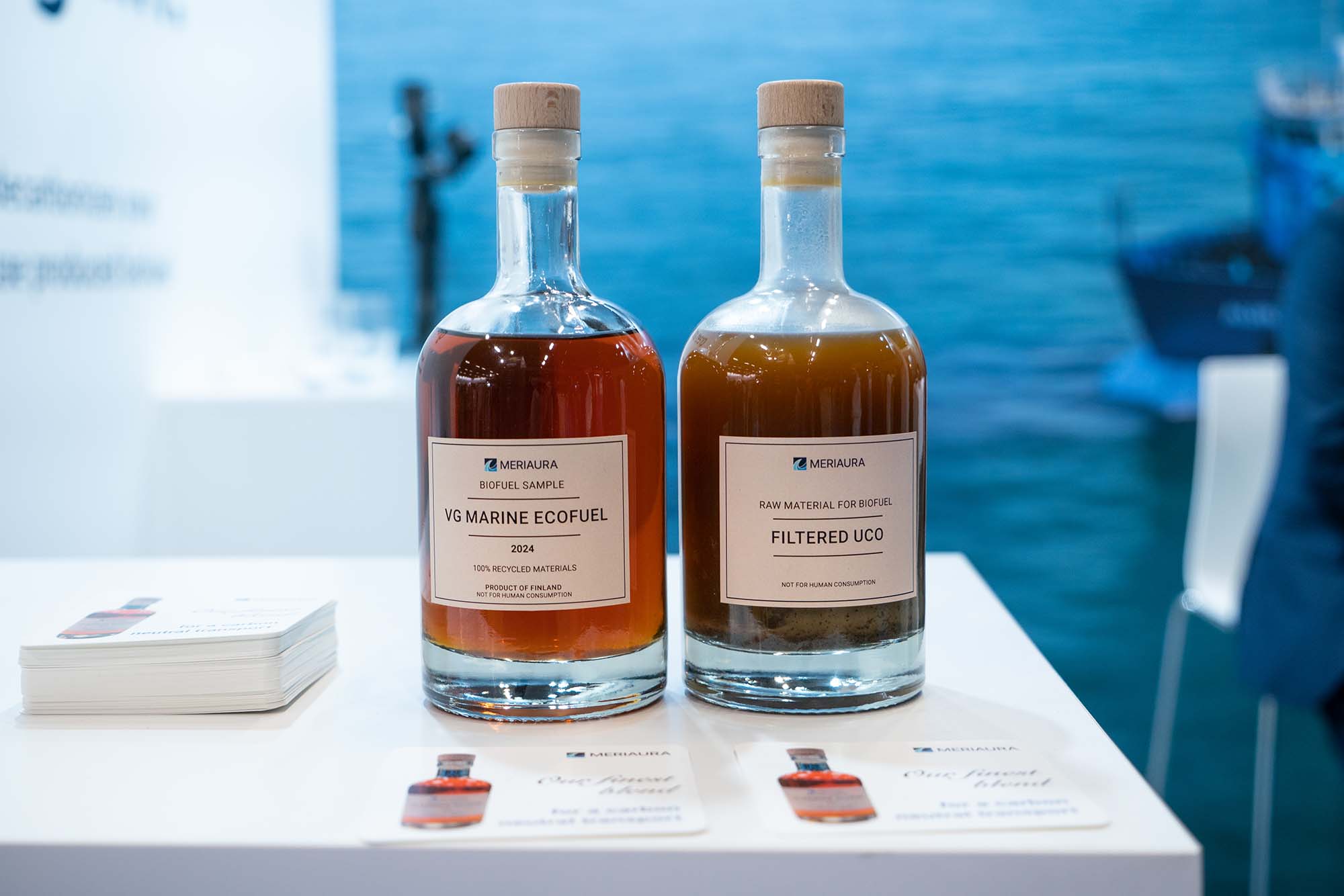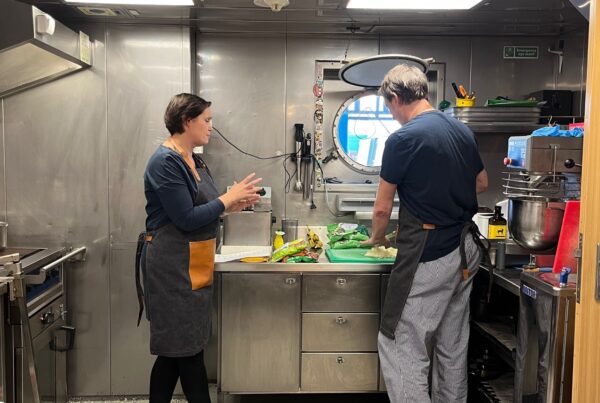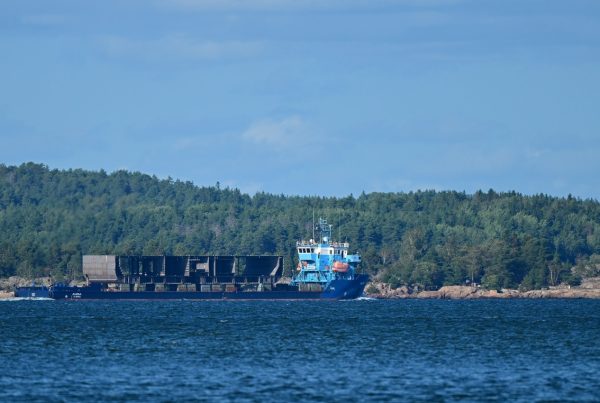Meriaura has been using bio-oil in its fleet for over a decade. The set-up where Meriaura or its affiliates are involved in the whole process from sourcing the raw material, producing the fuel and even the energy (biogas) for the production process, to using the fuel in the company’s fleet, is completely unique. Many other technologies are gaining more attention lately. Why is bio-oil still Meriaura’s preferred choice?
In terms of climate change, one of the biggest problems is that fossil fuels work well, they are abundant and cheaply available, and people have practiced their processing, use, transport and distribution for hundreds of years. Fossil fuels also have a high energy density, which means that the fuel tanks of a vehicle, such as a ship, can store enough fuel for a long voyage.
Unfortunately, fossil fuels have one weakness above all others. By using fossil fuels, we release carbon into the atmosphere that would otherwise remain in the soil. And that carbon, whether it is carbon dioxide or methane, accumulates in the atmosphere and prevents heat from escaping from the Earth. Greenhouse gas concentrations in the atmosphere are already at a dangerously high level and are still rising at an almost record-breaking pace.
We need to find alternatives to fossil fuels urgently. There are many promising alternative technologies – however, all of them have technical weaknesses compared to fossil ones. A key problem for many technologies is low energy density. For example, current battery technology requires at least an order of magnitude more space in a ship than oil. With current technology, it is not possible to build such a ship that would travel long distances with the energy stored in batteries and that could carry a lot of cargo in addition to batteries. Of course, the battery solution is functional on short, regular routes.
Synthetic fuels are developing and will likely dominate the industry in the future. They also generally have a lower energy content than oil, and they and the technology required for them are not yet widely accessible, especially at a competitive cost. But the future of fuels made with low-cost, low-emission electricity looks promising.
Shipping used to rely on wind power and have low carbon emissions for thousands of years. However, in the era of cheap oil a system has been built that does not work well with wind power as the main power source. Large sails are incompatible with current infrastructure, schedules, cargo transport requirements and many other factors.
Meriaura carried out a 3-year development project to explore the suitability of available solutions to our shipping business. The results of this work encouraged us to develop and use waste-based bio-oil. Biofuels, especially on a large scale, are associated with numerous sustainability problems, but if the fuel is made from raw materials that otherwise have little use, the situation changes. For example, raw materials that are by-products or waste of food industry do not compete with food production or weaken biodiversity. Waste-based fuels can also be considered almost carbon neutral, as the carbon they contain would be released into the atmosphere in any case, especially if the alternative end use were a landfill or similar. It makes sense to use bio-oil made from such raw materials as energy, for example as fuel for ships. What this means in terms of emissions calculations is that while the Tank-to-Wake emissions for all biofuels are in EU Emission Trading System currently considered as zero, for a waste-based fuel such as Meriaura’s VG Marine EcoFuel™also the Well-to-Wake emissions are remarkably low (life-cycle emissions reduction of 97,7%), which is not the case for any biofuel.
Another advantage of this bio-oil is that it does not require major technological modifications. The same equipment as with conventional oil can be used for the distribution, and the ships’ sturdy engines can run on this kind of fuel with very minor changes.
Meriaura’s research showed that bio-oil is currently the fastest technology to reduce our emissions. The ships built today will still be in traffic for decades, so it is important to consider the emissions of their whole lifespan and make drastic cuts in emissions as soon as possible – bio-oil allows this to happen. And as stated, emission reductions are urgent. Fortunately, this urgency is finally being reflected in the regulation of shipping as well. For example, the IMO has outlined that shipping must be carbon neutral by 2050. At the latest climate meeting, the countries of the world decided that they will “transition away from fossil fuels”, i.e. stop using all fossil fuels – although the year was not mentioned.
The biggest weakness of waste-based biofuel is probably that the amount of suitable raw material is limited, and it has the potential to replace only a part of the fossil fuel. But for individual shipping companies, it is a significant and viable alternative to fossil fuels.
Fossil fuels will be replaced by many different technologies, and biofuels have their own role in this equation. We are following the development at Meriaura and will introduce other carbon-neutral solutions as well, but right now our main focus is on developing the production and use of bio-oil.
The two newbuildings we ordered in spring 2024 that will join our fleet in 2026 will increase the share of bio-oil powered vessels in our fleet to about 30%. These vessels enable us to increase the share of bio-oil of all the used fuel to a new level and the emissions generated by our transport will continue to decrease.
Esko Pettay
Sustainability Manager









